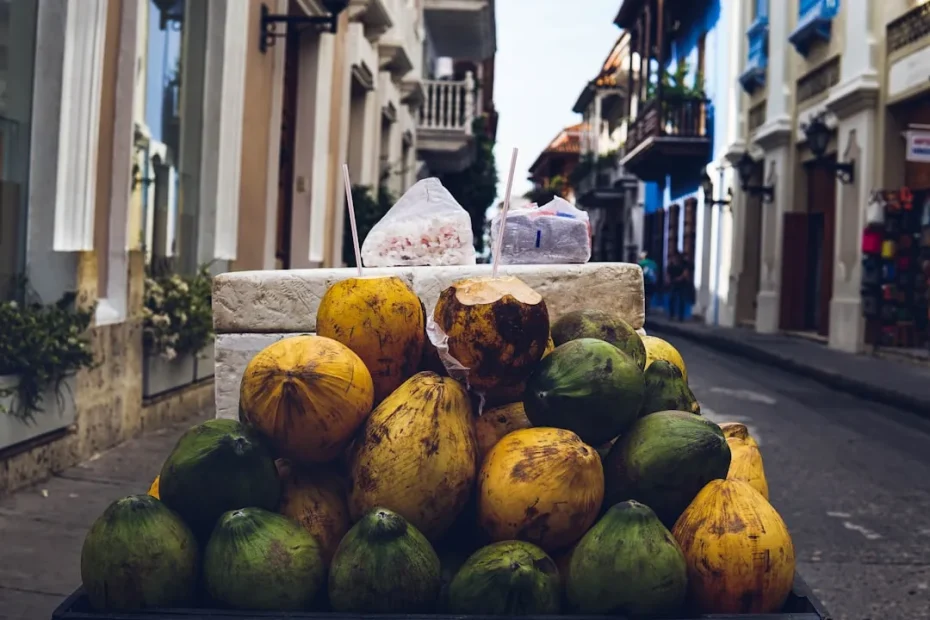The carnivore diet, also known as the all-meat or zero-carb diet, has become an increasingly popular way of eating for people looking to improve their health, lose weight, or simplify their nutritional approach. As the name suggests, it involves eating only or predominantly animal foods like meat, fish, eggs, and dairy while avoiding all plant foods, including vegetables, fruits, grains, legumes, nuts, seeds, and plant oils.
But what about coconut and coconut-based products? Coconut comes from a plant, yet it is unique in its nutritional makeup compared to other plant foods. So should coconut be avoided on a strict carnivore diet or can it be included?
Coconut Is Technically a Fruit, Not a Nut
While often referred to as a nut, coconut is botanically classified as a drupe – a fruit with a hard, stony outer covering surrounding the seed or pit inside. Other examples of drupes include peaches, plums, and cherries.
So coconut should be grouped with other plant-based fruits that are restricted to the carnivore diet. However, as we’ll explore next, coconuts have some key differences from most fruits, which set them apart nutritionally.
Coconut Is Very Low in Carbohydrates Compared to Other Plant Foods
The main reason fruits, vegetables, grains, and legumes are eliminated from the carnivore diet is because of their high carbohydrate content. Carbs increase blood sugar and insulin levels, potentially leading to weight gain, metabolic issues, and inflammation in the body.
However, coconut is an outlier among plant foods when it comes to its low-carb content:
- One cup of shredded coconut meat contains only 7 grams of net carbs (total carbs minus fiber).
- In comparison, one cup of blueberries has 21 grams of net carbs, and one medium banana has 27 grams.
So coconut contains just a fraction of the carbohydrates found in typical fruits and vegetables. This makes it more compatible with a very low-carb eating approach like the carnivore diet.
Coconut Is High in Healthy Fats, Not Sugars
In addition to being low in carbs, the majority of calories in coconut come from fat rather than sugar:
- Over 90% of the calories in coconut meat and milk come from fat.
- Coconut fat is mostly saturated fat in the form of medium-chain triglycerides (MCTs).
- Coconut only contains minimal natural sugars like sucrose, glucose, and fructose.
This high-fat, low sugar signature sets coconut apart from all other fruits. Most fruits are high in sugar (fructose) and low in fat, which impacts blood sugar significantly. Coconut’s macronutrient ratio is much more aligned with the carnivore diet’s emphasis on animal fats over carbs and sugars.
Coconut Provides MCTs, A Unique Form of Saturated Fat
All fats are not created equal. The types of fats we eat matter greatly to our health.
The saturated fats found in coconut are predominantly medium-chain triglycerides (MCTs), whereas most other saturated fats from animal sources are long-chain triglycerides (LCTs).
Some key advantages of MCTs in coconut:
- MCTs are efficiently metabolized for energy and less likely stored as fat.
- MCTs may help optimize ketone production and fat burning.
- MCTs have antimicrobial and antioxidant properties that support gut and immune health.
So the MCTs in coconut provide unique health benefits compared to other forms of dietary saturated fats.
Coconut Has Beneficial Micronutrients
In addition to its great fat content, coconut supplies an array of vitamins, minerals, and phytonutrients including:
- Manganese, copper, iron, phosphorus, selenium, and magnesium.
- B vitamins include folate, niacin, thiamine, riboflavin, and pyridoxine.
- Powerful plant compounds and antioxidants such as flavonoids and phenolic acids.
These micronutrients function as co-factors for important bodily processes and act as antioxidants. While the carnivore diet provides many essential micronutrients through animal foods, coconut offers complementary nutritional support.
Potential Downsides of Coconut on the Carnivore Diet
Despite its differences from other plant foods, coconut is not a perfect fit for the carnivore diet. Here are some potential downsides:
- Contains phytic acid, a plant antinutrient that impairs mineral absorption.
- Has lectins and other antinutrients that may irritate the gut lining in sensitive people.
- Still raises blood sugar and insulin modestly compared to meat, fish, eggs and dairy.
- May stall ketosis depending on individual carb tolerance and total intake.
- Upsets the simplicity and orthodoxy of an all-animal food diet.
So while coconut has some favorable attributes, it may still pose drawbacks for those adhering strictly to carnivore principles or who have autoimmune conditions, severe metabolic disease, or gut issues.
How Much Coconut Can You Eat on Carnivore?
While small amounts of coconut oil are typically fine, opinions differ on coconut meat and other coconut products. Here are some general guidelines:
Coconut oil: 1-3 tablespoons per day. Use for cooking, fat bombs, etc.
Coconut cream/milk: Limit to 2-3 tablespoons per day or avoid altogether. Higher in carbs than oil.
Coconut meat: Contains about 5g net carbs per ounce. Best limited to a sprinkle or avoided.
Coconut wraps: Often used to replace tortillas but contain carbs. Keep to 1 wrap per day max.
Coconut flour: Very high in fiber so subtract those carbs. max 1-2 tbsp per recipe.
Coconut aminos: contain 2g of carbs per tablespoon, so limit it to 1-2 tbsp per day.
The more restrictive you want to be, the less coconut products you should use beyond coconut oil. Have just a touch for flavor or health benefits while sticking mostly to meat.
Tips for Integrating Coconut on Carnivore
As someone who loves coconut, I found ways to work it into my carnivore experiment by following these tips:
Stick to oil: Get your coconut benefits from 1-2 tbsp oil without extra carbs. Use for cooking or making fat bombs.
Read labels: Scan labels and calculate net carbs when using coconut wraps, flour, milk, etc. Account for fiber.
Weigh portions: If eating coconut meat, weigh a 1-2 oz serving and track carbs. It’s easy to overdo it.
Substitute sparingly: Swap small amounts of coconut flour for almond flour in recipes, but don’t rely on it.
Have as a treat: Allow yourself fresh coconut water or coconut macaroon once in a while as a low-carb treat.
Avoid sweetened products: Stay away from store-bought goods with added sugars like coconut candy, rice, ice cream, etc.
Bottom Line: Occasional Use of Coconut May Be Reasonable
Given all the nutrition factors analyzed above, consuming some coconut periodically may be feasible on a carnivore diet, but regular high amounts are probably best avoided.
Here are some recommended guidelines for coconut inclusion based on your health goals and carb tolerance:
- Strict carnivore: Avoid coconut and coconut products entirely.
- Carnivore for general health: Occasional use of coconut oil or milk in cooking/beverages in moderation.
- Carnivore for therapeutic ketosis: Limit coconut intake to 1-2 tbsp oil or 2-4 oz milk per day max to prevent stalling ketosis.
- Carnivore but not afraid of plants: Moderate use of coconut meat, milk, oil, and flour preparations that fit macronutrient goals.
Ultimately, each individual must experiment to see if coconut products fit their needs and align with their health objectives on a carnivore diet. While not 100% carnivore compliant, coconut can be a gray area “conditional plant food” for those who wish to indulge once in a while. But strict carnivores will likely shun coconut altogether.
Other Questions About Coconut and Carnivore Diet
Can you drink coconut water on a carnivore diet?
Coconut water has more natural sugars compared to coconut meat and milk, so it is not ideal. An occasional small amount after exercise may be tolerated, but regular intake could disrupt ketosis.
What about coconut aminos and coconut vinegar?
Coconut aminos are not allowed since they contain maltodextrin and other additives. Coconut vinegar is essentially fermented coconut water, so it also contains higher sugars and may be best avoided.
Is coconut flour okay on carnivore diet?
Coconut flour is very high in fiber and absorbs a lot of liquid, so overdoing it could cause digestive issues. Occasionally using a small amount for baking may be feasible for some following a flexible carnivore diet. But it is not recommended for strict carnivores.
Is coconut sugar carnivore-compliant?
No, coconut sugar is essentially just another sweetener, containing the same sucrose as regular sugar cane. It spikes blood sugar similar to table sugar so should not be used on a carnivore diet.
Can I have coconut milk yogurt?
Homemade coconut milk yogurt using just coconut milk and probiotic cultures could potentially fit into a carnivore diet in moderation. But commercial products contain added sugars and thickeners so are not compliant.
Are coconut chips acceptable on a carnivore diet?
Coconut chips, even with no additives, are often fried in vegetable oils. They also provide easy overconsumption of coconut. So coconut chips are not recommended on a carnivore diet.
Conclusion
The unique nutritional profile of coconut makes it a gray area food when it comes to the carnivore diet. While not an ideal fit, the occasional use of coconut oil, milk, or meat may be tolerated by some adhering to a carnivore framework for general health or therapeutic ketosis. But strict carnivores will want to avoid coconut altogether. Pay attention to how you individually respond to coconut products to guide your personal optimal use.



